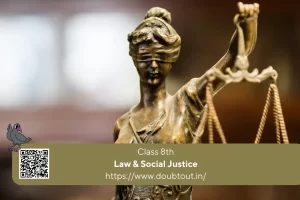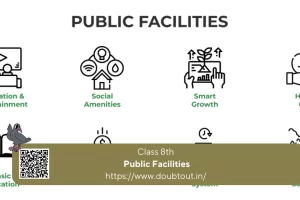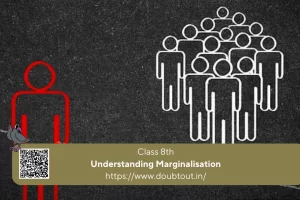
NCERT Solutions for Class 8 Civics Chapter 6 – Confronting Marginalisation

NCERT Solutions for Class 8 Civics Chapter 6 – Confronting Marginalisation is given here for students to study and excel in their board exams. How would anyone feel if they were denied their rights? There are several instances in India where members of the lower castes, minorities, women, and other marginal groups argue to be conferred equal rights as other citizens in this democratic country. A few of these marginal groups also look up to the Indian Constitution to redress their grievances.
1. List two Fundamental Rights in the Constitution that Dalits can draw upon to insist that they be treated with dignity and as equals. Re-read the Fundamental Rights listed on page 14 to help you answer this question.
Answer The two fundamental rights that Dalits can draw upon to insist that they be treated with dignity and as equals are as follows:
- Right to Equality: All persons are equal before the law. No citizen can be discriminated against based on his or her socioeconomic background, caste, religion, etc. Every person has an equal right of access to all public places.
- Cultural and Educational Rights: This includes the right to protect the culture language etc of different ethnic groups while at the same time allowing for access to education without any discrimination.
NCERT Solutions for Class 8 Civics Chapter 5 – Understanding Marginalisation (updated Pattern)
2. Re-read the story on Rathnam as well as the provisions of the 1989 Scheduled Castes and Scheduled Tribes (Prevention of Atrocities) Act. Now list one reason why you think he used this law to file a complaint.
Answer The Scheduled Castes and the Scheduled Tribes Prevention of Atrocities Act, 1989 seeks to punish those who humiliate or ill-treat the members of Dalit or tribal groups. Rathnam sought the support of the law, filing his complaint under the above Act to seek protection against the domination and violence of the powerful castes in his village.
Nourishing Sleep: The Impact of Empty Stomach Sleep on Health and Wellness
3. Why do Adivasi activists, including C.K. Janu, believe that Adivasis can also use this 1989 Act to fight against dispossession? Is there anything specific in the provisions of the Act that allows her to believe this?
NCERT Solutions for Class 8 Civics Chapter 6 – Confronting Marginalisation
Answer The Adivasi activists, including C.K. Janu, believe that Adivasis can use the 1989 Act to fight against dispossession because this Act guarantees the tribals the right not to be dispossessed from the land resources forcibly. They specifically pointed out that this Act merely confirms what has already been promised to the tribal people in the Constitution – the land owned by any tribal people cannot be sold to or bought by non-tribal people. In cases where this has happened, the Constitution also guarantees the right of the tribal people to repossess their land.
Tag:Civics, Class 8th, Social Science



